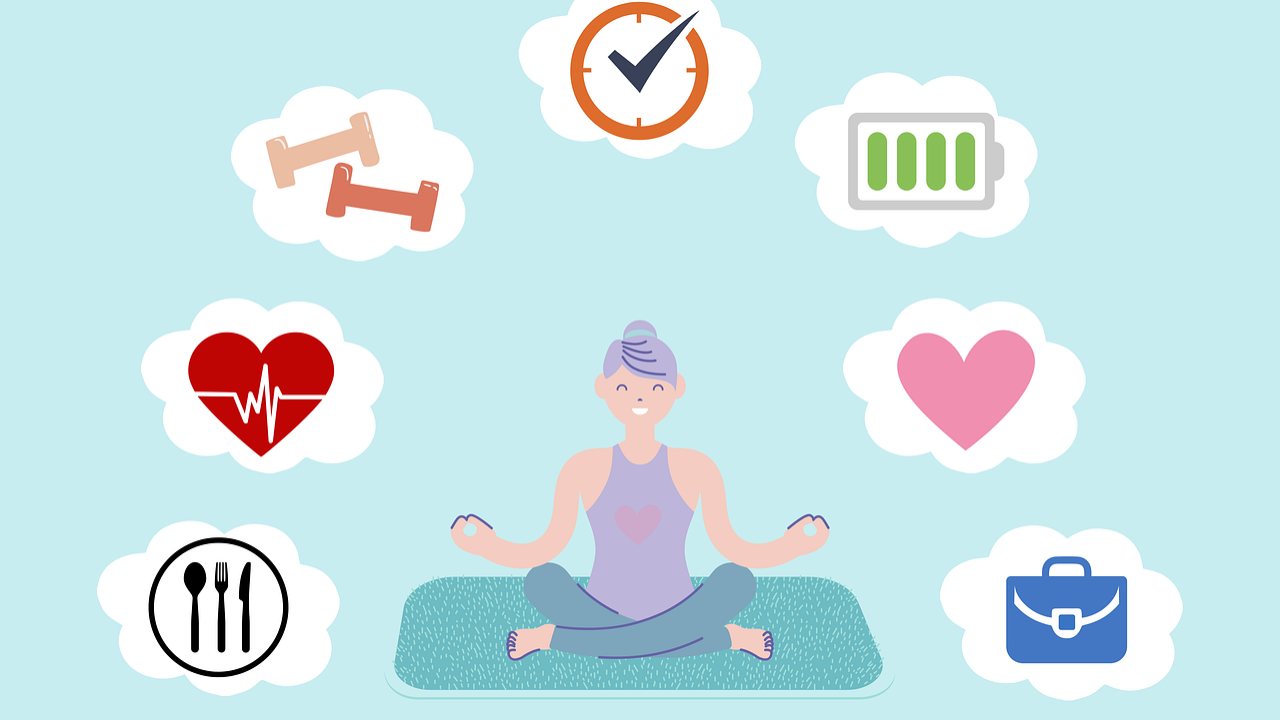Living a calm and relaxed life can feel like a challenge, especially with the constant demands women face in modern times. From managing careers to handling family responsibilities, stress can pile up quickly. However, achieving a stress-free life isn’t impossible. With the right techniques and mindset, women can create a life filled with peace and balance.
This article explores how can a woman live a stress-free life?, sharing nine practical tips that can help you manage stress and enhance your overall well-being.
How can a woman live a stress-free life?

Stress is a natural part of life, but when it becomes overwhelming, it can have significant consequences for physical and mental health. Women often face unique stressors, including societal expectations, hormonal changes, and multitasking responsibilities. Recognizing these stressors is the first step toward finding effective solutions.
Effects of Chronic Stress
- Fatigue and burnout
- Anxiety and depression
- Physical health issues such as headaches, high blood pressure, and weakened immunity
By addressing the root causes of stress, women can take proactive steps toward a healthier lifestyle.
9 Practical Tips for Women to Achieve a Calm and Relaxed Life
1. Prioritize Self-Care
Self-care is essential for managing stress effectively. Taking time to care for yourself can recharge your energy and improve your mental health.
Practical Ways to Practice Self-Care:
- Set aside 30 minutes daily for activities you enjoy, such as reading or yoga.
- Ensure you get 7-8 hours of quality sleep every night.
- Practice mindfulness techniques like meditation or deep breathing.
2. Adopt Relaxation Techniques
Incorporating relaxation techniques into your routine can help you stay calm and focused.
Simple Relaxation Techniques:
- Try progressive muscle relaxation to ease tension.
- Use guided imagery to visualize calming scenarios.
- Engage in hobbies such as gardening or painting.
3. Maintain a Balanced Diet
A nutritious diet can positively impact your mood and stress levels. The right foods provide the energy and nutrients needed to combat stress.
Foods That Reduce Stress:
- Fresh fruits and vegetables
- Whole grains and nuts
- Omega-3-rich foods like fish
4. Exercise Regularly
Physical activity is one of the most effective ways to manage stress. It releases endorphins, which are natural stress relievers.
Examples of Stress-Relieving Exercises:
- Morning walks in nature
- Low-impact exercises like swimming or cycling
- Yoga for flexibility and mindfulness

5. Set Realistic Goals
Unrealistic expectations can lead to unnecessary stress. Break down your goals into manageable steps and celebrate small achievements.
How to Set Achievable Goals:
- Write down your priorities for the day.
- Use tools like planners or apps to organize tasks.
- Focus on progress, not perfection.
6. Build a Support System
Surround yourself with positive and supportive people who understand your challenges and can offer encouragement.
Ways to Strengthen Relationships:
- Schedule regular catch-ups with friends or family.
- Join a community group or hobby club.
- Communicate openly about your feelings.
7. Manage Time Effectively
Time management can reduce feelings of being overwhelmed and improve productivity.
Tips for Better Time Management:
- Use the Pomodoro technique to focus on tasks.
- Prioritize tasks by importance and deadlines.
- Avoid multitasking and concentrate on one task at a time.
8. Practice Gratitude
Focusing on what you’re grateful for can shift your perspective and reduce stress.
Simple Gratitude Practices:
- Keep a gratitude journal and write down three things you’re thankful for daily.
- Share moments of gratitude with loved ones.
- Reflect on positive aspects of your day before bedtime.
9. Seek Professional Help When Needed
If stress becomes unmanageable, seeking help from a therapist or counselor can provide valuable support.
When to Consider Professional Support:
- Persistent feelings of anxiety or sadness
- Difficulty functioning in daily life
- Lack of interest in previously enjoyable activities
Comparison of Stress Management Techniques
| Technique | Benefits | Examples |
|---|---|---|
| Relaxation Techniques | Reduces muscle tension and calms the mind | Meditation, deep breathing |
| Balanced Diet | Boosts energy and improves mood | Fresh fruits, whole grains |
| Regular Exercise | Releases endorphins and reduces fatigue | Walking, yoga |
| Time Management | Enhances productivity and focus | Pomodoro technique, to-do lists |
Conclusion
Learning how can a woman live a stress-free life? involves adopting habits that promote calmness and balance. By prioritizing self-care, managing time effectively, and seeking support, women can reduce stress and enhance their quality of life. Remember, small changes can lead to significant improvements in your overall well-being.
FAQ’s
How can women reduce stress naturally?
Women can reduce stress naturally by practicing mindfulness, engaging in regular exercise, and maintaining a balanced diet. These habits support both physical and mental well-being.
What are the best relaxation techniques for women?
The best relaxation techniques include deep breathing exercises, progressive muscle relaxation, and meditation. These methods help calm the mind and release tension.
Why is time management important for stress relief?
Effective time management prevents feelings of being overwhelmed and allows women to focus on their priorities. This can significantly reduce stress levels.
What foods are good for stress management?
Foods rich in vitamins and minerals, such as fresh fruits, vegetables, and omega-3-rich fish, can improve mood and reduce stress.
When should a woman seek professional help for stress?
Women should seek professional help if they experience persistent feelings of anxiety, sadness, or an inability to function in daily life. A counselor or therapist can provide valuable support.





